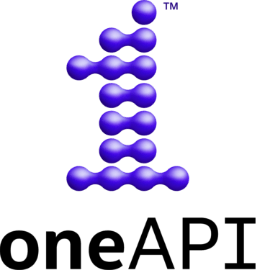IWOCL 2024 Hackfest and Conference: A Gathering of SYCL, OpenCL, and oneAPI Enthusiasts

I attended the IWOCL 2024 Hackfest and Conference in April 2024, an event that attracts professionals and researchers from various industries, universities, and government research sectors for collaboration in the field of SYCL, OpenCL, and oneAPI.
Each of the four days of the workshop had a specific focus:
- Day 1 consisted of a one-day hackathon where participants could either bring their own code to build-on or work on a set of default benchmark projects provided to them
- Day 2 consisted of a full-day advanced SYCL tutorial workshop
- Day 3 and 4 consisted of keynotes and panel discussions
In this brief blog, my interest was primarily focused on the hackathon and the conference award session.
IWOCL Hackfest
It was very interesting to see the projects submitted by the participating developers. The hackfest was backed by Intel Developer Cloud (IDC) and Argonne’s Polaris systems, the latter also providing an Nvidia system with POLARIS to support the oneAPI cross-architecture story. The participants used the IDC PVR/SPR 1100 bare metal system with no technical issues reported.
Ten teams and 18 participants worked on codes based on specified themes.
- Performance and Optimization: Projects that can be optimized to bring performance enhancements to key parts of the software, including across multiple processor architectures.
- SYCL 2020 Features: Implement parts of a project using features from the latest SYCL 2020 specification that could improve the structure, performance or generally make the project better.
- CUDA to SYCL Porting: Convert a project or piece of code that contains CUDA code to SYCL using various methods including SYCLOmatic. Demonstrate a final state that shows your project working on different processors.
- Improving Occupancy and Consistency of Run Time [Default]: Running benchmarks can be tricky. There are different considerations that need to be taken into account when writing and also running benchmarks. Is the benchmark running with high occupancy on the target processor? Does the benchmark run for long enough for the recorded timing to be a useful measure? Do the benchmarks provide consistent results? We will introduce the benchmark project to you ahead of time.
Several interesting project code additions and extensions emerged from the hackathon:
- Grid: Dennis Bollweg and Xiang Gao (BNL/ANL) worked on Grid, a Data Parallel C++ mathematical object library https://github.com/dbollweg/Grid.git.
- SimSYCL: Fabian Knorr added SimSYCL to the oneAPI repo https://github.com/celerity/SimSYCL
- ROOT to SYCL: Jolly Chen (CERN) ported part of ROOT (RDataFrame) (https://root.cern/) to SYCL https://github.com/jolly-chen/root/tree/gpu_histogram_bulk/tree/experimental/
- PySyCL: Intel innovator, Osman Elghotmi, University of Ottawa, enhanced PySyCL, PySyCL, an open-source python interface for SYCL, adding performance improvements, a dedicated FFT function, new test samples, and bug fixes https://github.com/PySYCL. Osman took the opportunity to re-release this project under its own identity.
- PLSSVM: Marcel Breyer extended PLSSVM, a machine learning platform, adding AdaptiveCpp’s stpar support (https://github.com/SC-SGS/PLSSVM)
IWOCL Conference Awards
It was also interesting to attend the conference awards announcement at the endof the conference, the evening of Thursday, April 21st.
- Outstanding Short Paper or Technical Talk: Evaluation of SYCL’s Different Data Parallel Kernels –– Marcel Breyer, University of Stuttgart (Intel Innovator). Co-authors: Alexander Van Craen and Dirk Pflüger, University of Stuttgart.
- Outstanding Full Paper: SimSYCL: A SYCL Implementation Targeting Development, Debugging, Simulation and Conformance – Fabian Knorr, University of Innsbruck. Co-authors: Peter Thoman, University of Innsbruck, and Luigi Crisci, University of Salerno.
- Outstanding Poster: Lessons Learned Migrating CUDA to SYCL: A HEP Case Study with ROOT RDataFrame – Jolly Chen, University of Amsterdam, CERN. Co-authors: Monica Dessole, CERN and Ana Lucia Varbanescu, University of Twente. I look forward to attending the next annual conference. In the meantime, the SYCL and OpenCL, and oneAPI community encourages developers to actively contribute and shape the future of parallel programming frameworks. A background of IWOCL Since its inception in 2013, The International Workshop on OpenCL (IWOCL) is the annual forum for the community to present, discuss and learn about applying the Khronos Open Computing Language (OpenCL) and SYCL for programming heterogeneous platforms to solve computationally demanding problems across a wide range of application domains.
References
- IWOCL YouTube Channel
- IWOCL Proceedings
- Khronos Group SYCL Project
- Khronos Group OpenCL Project
- Unified Acceleration Foundation

